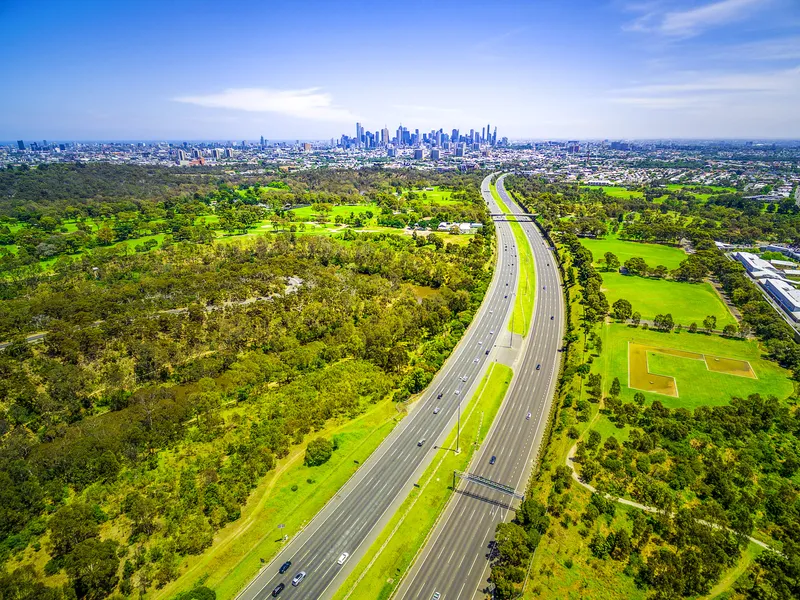Fitch Ratings says in a newly published report, 2016 Mid-Year Outlook: Australian Transportation, that the agency's outlook on Australian transportation infrastructure is stable.
It says toll roads will benefit from continuing healthy economic growth, while the weaker Australian dollar will help support ports with exposure to the commodity export sector. However, exposure to medium-term bullet debt could leave issuers vulnerable to refinancing risk in the event of a significant downturn in the Australian
July 28, 2016
Read time: 2 mins
Fitch Ratings says in a newly published report, 2016 Mid-Year Outlook: Australian Transportation, that the agency's outlook on Australian transportation infrastructure is stable.
It says toll roads will benefit from continuing healthy economic growth, while the weaker Australian dollar will help support ports with exposure to the commodity export sector. However, exposure to medium-term bullet debt could leave issuers vulnerable to refinancing risk in the event of a significant downturn in the Australian economy or banking sector.
Toll-road traffic has remained robust in 2016 following the completion of road-expansion works, continuing the trend of recent years. In the nine months to March 2016, traffic growth on600 Transurban's Sydney network grew by 7.7 per cent year-on-year, with a slower pace in Melbourne and Brisbane. Fitch expects overall traffic growth in the low- to mid-single digits for the agency's rated Australian road portfolio in 2016.
The performance of the transportation assets in Fitch's Australian portfolio is underpinned by their important economic roles. Roads in the Transurban portfolio make up the bulk of the key motorway networks in Sydney and Melbourne, and provide a crucial connection to the central business district in Melbourne. In the port sector, the Dalrymple Bay Coal Terminal (DBCT) is the largest coal export terminal in serving the Bowen Basin in Queensland. DBCT also benefits from strong take-or-pay contracts with its customers, including pass-through of operating and maintenance costs.
Nonetheless, Australian transportation companies have unusually high exposure to medium-term (three- to five-year) domestic bullet bank debt compared with global peers. Cash flows should be able to support potentially higher debt costs in the future, while the need for regular refinancing of these long-life assets is a weakness relative to global peers, and exposes these companies to the liquidity risks of the Australian banking sector.
Furthermore, the transport sector is sensitive to fluctuations in Australian GDP growth, and its banking sector is heavily reliant on external debt funding. Australian transportation firms could be exposed to reduced traffic levels or to difficulties in refinancing maturing debt should either of these factors deteriorate substantially.
It says toll roads will benefit from continuing healthy economic growth, while the weaker Australian dollar will help support ports with exposure to the commodity export sector. However, exposure to medium-term bullet debt could leave issuers vulnerable to refinancing risk in the event of a significant downturn in the Australian economy or banking sector.
Toll-road traffic has remained robust in 2016 following the completion of road-expansion works, continuing the trend of recent years. In the nine months to March 2016, traffic growth on
The performance of the transportation assets in Fitch's Australian portfolio is underpinned by their important economic roles. Roads in the Transurban portfolio make up the bulk of the key motorway networks in Sydney and Melbourne, and provide a crucial connection to the central business district in Melbourne. In the port sector, the Dalrymple Bay Coal Terminal (DBCT) is the largest coal export terminal in serving the Bowen Basin in Queensland. DBCT also benefits from strong take-or-pay contracts with its customers, including pass-through of operating and maintenance costs.
Nonetheless, Australian transportation companies have unusually high exposure to medium-term (three- to five-year) domestic bullet bank debt compared with global peers. Cash flows should be able to support potentially higher debt costs in the future, while the need for regular refinancing of these long-life assets is a weakness relative to global peers, and exposes these companies to the liquidity risks of the Australian banking sector.
Furthermore, the transport sector is sensitive to fluctuations in Australian GDP growth, and its banking sector is heavily reliant on external debt funding. Australian transportation firms could be exposed to reduced traffic levels or to difficulties in refinancing maturing debt should either of these factors deteriorate substantially.









